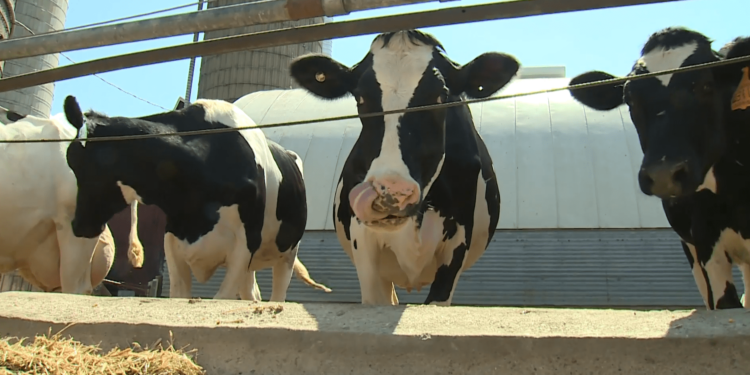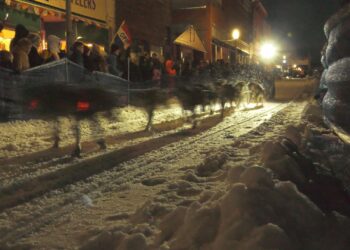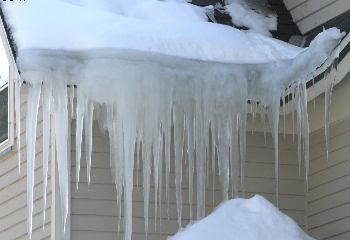NORWAY, Mich. (WZMQ) A local feed mill grapples with the unforgiving impact of a relentless drought. Farmers are left with no choice but to embark on arduous journeys spanning up to 5 or 6 hours in some instances to secure sustenance for their animals. It’s the smaller hobby farms that bear the brunt of this merciless drought, and their calls regarding the dwindling hay supply have inundated the local feed mill’s office.
Tiffany LaFond, the Office Manager at Parker Feed and Supply, shared her concerns, “We just carry small square bales here—Alfalfa and grass hay, and we’ve been out-of-stock for over a month now. A lot of people are traveling from places as far as lower Wisconsin.”
The situation remains uncertain as to when the feed mill will be able to restock, leaving many farmers in a precarious position.
Just across the Michigan border, a landowner recently reported hay prices soaring to an astonishing $15 per bale. The feed store manager at Parker Feed and Supply, not at all surprised by that price point, affirmed the grim reality.
LaFond reflected on the severity of the crisis, stating, “When we do get it, it seems to sell out right away, because people buy large quantities to ensure they have enough to get by.”
State Senator Ed McBroom weighed in on the matter, “We had a very dry spring, in certain parts of the U.P., and a few areas have even persisted through the entire summer. So hay is in difficult supply. The price of it is up, which for those of us who are end users of hay, certainly, it increases the difficulty. The few people who have hay, of course, can benefit from being able to sell it, if they’re not using it for their own animals. So it’s just one of the many challenges that farmers experience on a somewhat regular basis. This isn’t the worst drought, or the worst shortage we’ve ever been through. So I think a lot of us are prepared, to some extent. You know we have a history of this before, this is not the worst that it’s been. But it is a trial, and with other commodity prices that we’re dealing with, it’s certainly a storm on top of a storm.”
LaFond echoed Senator McBroom’s sentiments, “This year, there has been quite a big hay shortage. More than I’ve seen in years past,” she commented, adding “A lot of people who have a lot of animals are traveling quite far to get the hay.” LaFond recalls that last year, the feed supply was pretty well stocked up. “We never ran out, that I can remember. This year has just been way worse with the dry Spring. Unfortunately, there is just not enough going around,” she expressed.
“It’s definitely the worst drought that we’ve had, I would say probably for almost 10 years, now,” he noted. “For some of the folks where it never ended this summer, who stayed dry all the way through, they are having to travel quite a distance to find hay. And that, with the fuel costs, it is adding a real challenge here,” Senator McBroom commented.
“I would say maybe there are some areas that maybe aren’t hit as hard, but I would say probably everybody in the whole U.P. is in the same boat,” LaFond remarked, in her estimation as to the impact on the U.P. as a whole.
Cattle owners, with some flexibility in their feed options, can adapt, but horse owners are compelled to rely on hay, regardless of the weather’s unpredictability.
“For those of us with cattle, there’s oftentimes other alternatives. Finding different silages, corn silage. For those with horses, it can be a lot more challenging. The amount of different alternatives they have for feed can be quite a bit less. Especially if they have a lot of horses and not enough land to let them winter pasture. So there are a lot of challenges. And every farm has them. And every farmer has their way of figuring it out, or deciding that this is no longer viable for them. And farming is just as much a lifestyle choice as it is a business style. And that’s why some folks move on, and others of us suffer through, and try to get out the other side as best we can. But you’ll see neighbors helping neighbors. I’ve been there, and so folks are going to be calling other farmers, and farmers are going to be selling their hay a little bit at a time. Thinking, ‘you know we get to march, well can I sell some of what I have to this guy down the road who needs just a little bit, and make it to the next harvest?’ – So you’ll see a lot of support, and a lot of the community coming together to try to help each other out,” shared Senator McBroom. He also noted that unfortunately, the price of beef is up right now, and some farmers can liquidate a portion of their herd to alleviate needs this winter, but reflected that liquidating could cut into what the farms have available to sell in the spring, and potentially affect how many calves the farms produce. “Farming is a challenge, and it’s been that way for thousands of years,” he said, acknowledging the sense of community that enables Upper Peninsula residents to persevere through challenging winters.
Smaller hobby farms are faced with heart-wrenching decisions for their beloved animals.
“Those seem to be the ones that call here the most. The ones that have a couple goats, or a few horses. Those people look forward to coming here to get their hay. Those people don’t have another source,” stated LaFond.
LaFond recounted the lengths to which some farmers have gone, saying, “A lot of people are getting hay from out of town, traveling long distances. It’s been a really sad, pitiful year for hay.”
Senator McBroom, while acknowledging the difficulties, urged understanding, “Folks I hope are understanding when they see a farmer pulling a big load of round bales or square bales, and going slowly. That this is part of the difficult work that’s going on in order to keep making food for people,” he shared. He considered the impact regarding the shortage in regard to farm size, adding, “Certainly, we’re all looking at the winter, we don’t know how long the winter is going to be, how long we are going to have to feed, and buy supplies. But a big farm, or even a medium farm such as mine, where we’re feeding 120 milk cows, 300 young stock. That’s a lot of hay to move back. So a smaller farm, while they might not have had as much equipment, they might not have had as much capital investment, either. And they might not have to haul quite as much in, so a larger farm is going to be looking for a lot more supplies, or a lot bigger supplier, and possibly traveling a greater distance a lot more times. So it’s a big challenge, no matter what size farm you are, to deal with the weather,” he shared.
Despite the adversity, there may be hope on the horizon. Senator McBroom shared, “There’s certainly resources to try and reach out to. MSU and MSU extension. There’s connectivity that they can help make with farmers who have hay to sell, and those who are in need.”
The feed store promises to keep the community informed, stating that they will provide updates on restocking as soon as they are able. “We’ve been trying to get some for awhile,” LaFond assured.
For more information on the MSU extension, out of Alger County, visit:










